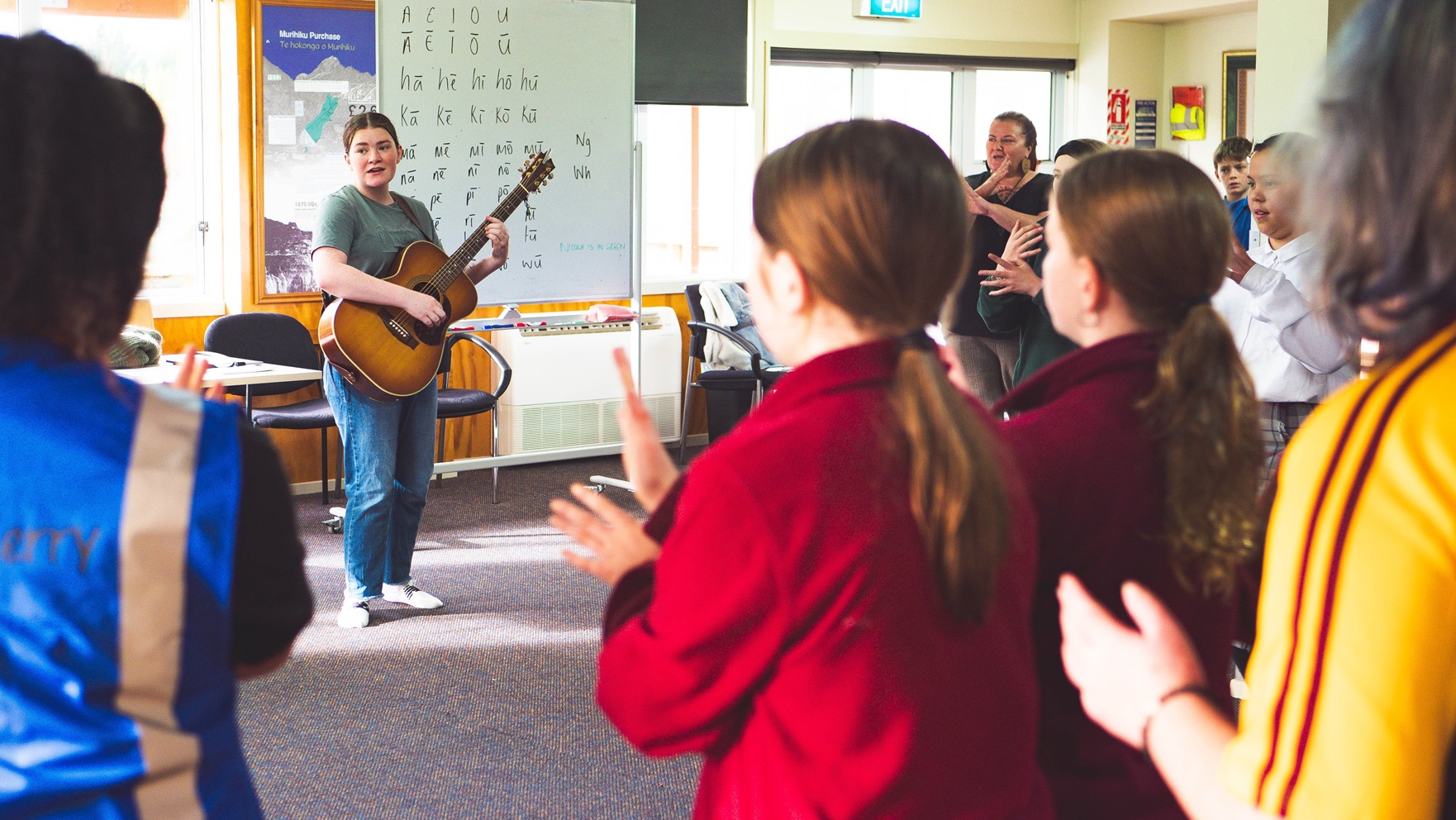
The celebrated local country/folk artist will return to the Bayleys Tussock Country music festival in May, performing to children via her stage persona Niccolo Piccolo and holding a te reo songwriting workshop for children years 6-13, with her twin Maegan Mitchell.
Ms Mitchell said she will be performing, as Niccolo Piccolo, a song she wrote with her pupils in the waiata workshop last year.
She said the performance and the workshop cater to whatever level of te reo the children are at, and if they have no knowledge, it is a chance for them to "just have a go".
"It’s kind of crafted so that wherever you’re at, the show kind of meets you where you are," she said.
She said at the workshop last year, the children were pleasantly surprised at their own ability to write a song.
"It’s really fun because they think seems like a really impossible task, but then they realise they’ve written the whole song in an hour, and then they go, oh, maybe it’s not so bad," she said.
In writing last year’s song Ko Wai Ahau, which translated to who am I, the musician prompted children to write from the perspective of something in nature and the children wrote a song from a mountain’s viewpoint
Currently in a full-immersion te reo course in Ōtaki in the Kapiti Coast, Ms Mitchell grew up performing in school kapa haka groups in Gore.
The Mitchell sisters have Māori ancestry on their father’s side and whakapapa to Waikato Tainui as well as Ngāti Maniapoto, Tūhoe, and Te Arawa.
Ms Mitchell said she saw this as a fun, full-circle moment where, after learning the foundations of Te Ao Māori in Gore, she came back to teach the town’s rangatahi in return.
She said attitudes towards the culture were improving in Southland, with a rise in popularity in schools and other outlets, but like everywhere else in the country, a lot more was still to be done.
Children are "sponge-like" she said, and able to absorb the new information more easily, to pass on to their older family members.
"It’s really cool to see grandparents and parents that haven’t spoken any Māori mainly decide that they’re going to learn how to say something because their grand kids like it or because their kids like it," she said.
She said the whole reason of learning to speak Māori was learning that the culture is all based around family and the value of being with those that are important to you.
She encourages anyone to have a try and see how it goes.
"They might not get it right, but they might get something right at some point and all those things."













